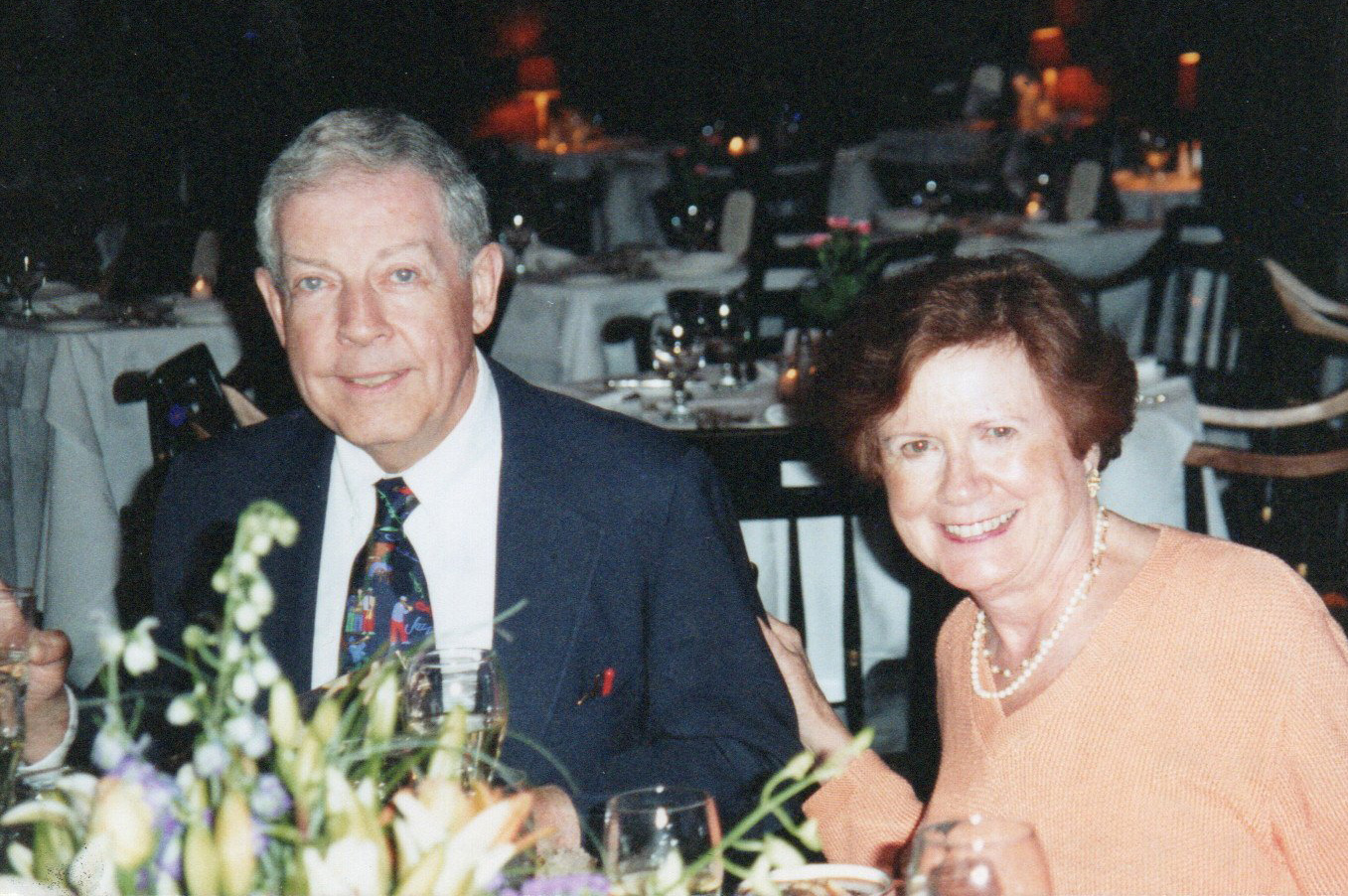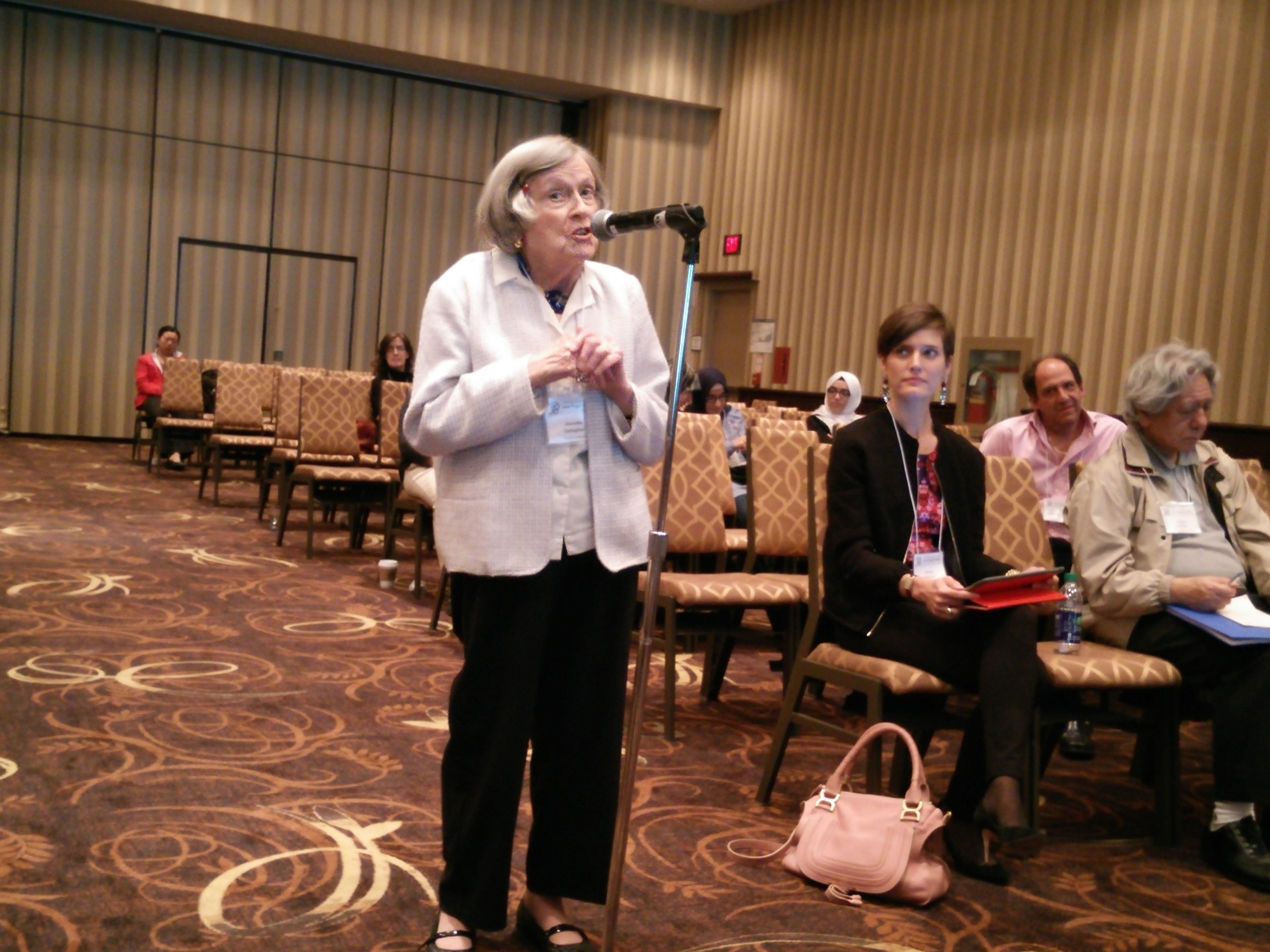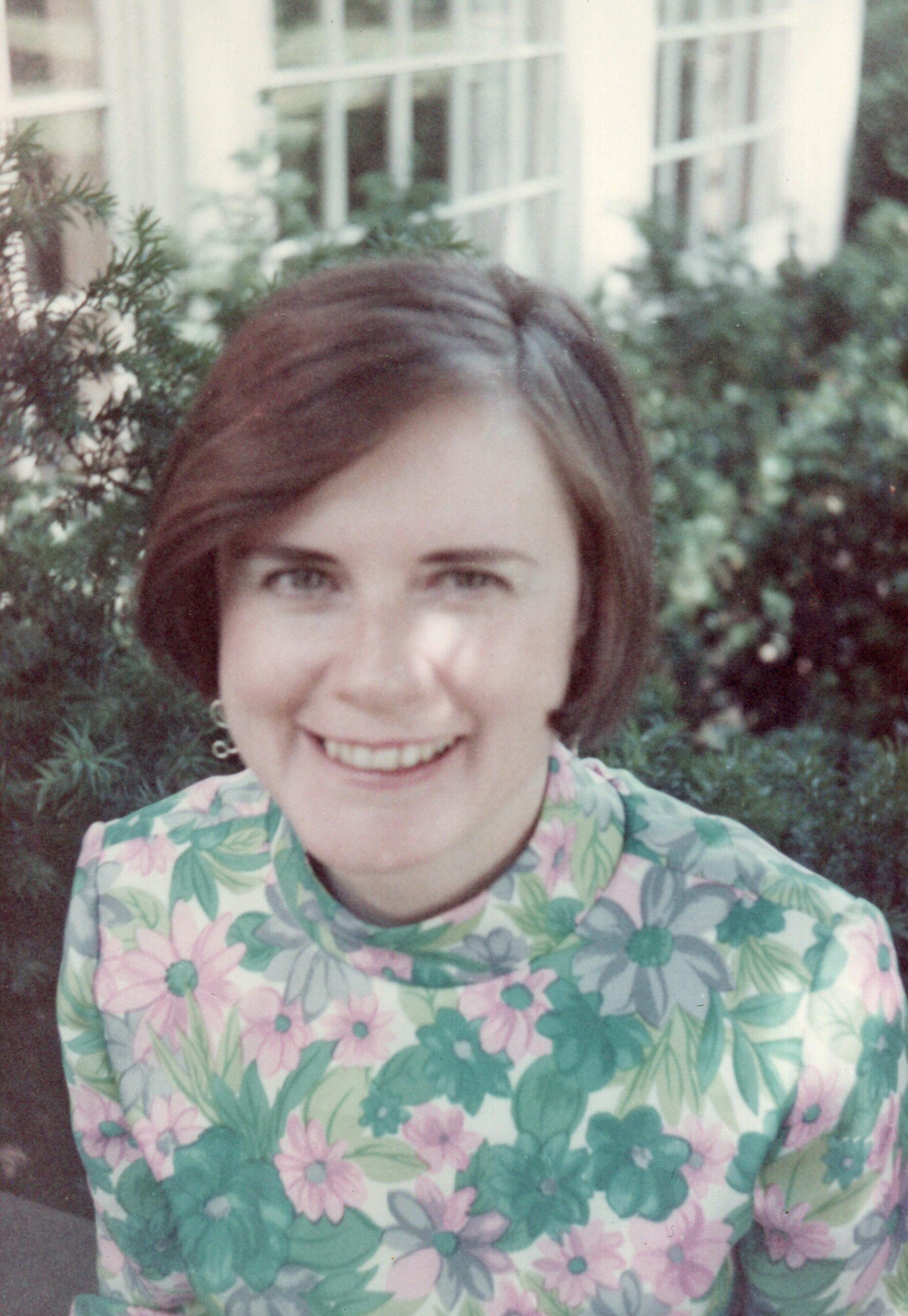Remembering Jeanette Gallagher

Memory from Jeremy Burman

Memory from Eric Amsel

Memory from Chris Lalonde
Memory from Bob Louisell

Dr. Jeanette McCarthy Gallagher, Emerita Professor of Educational Psychology at Temple University, died at her home in Doylestown, PA on June 20 at the age of 88. As was noted in the ceremony awarding her with JPS’s Lifetime Achievement Award at our recent 50th Anniversary Meeting, Jeanette was one of the group of women and men at Temple who conceived the idea for The Jean Piaget Society in 1970, organized a meeting in May of that year, and planned for the very successful visit of Piaget and Inhelder to Temple in 1971.
Her paper analyzing Piaget’s talk stemmed from that meeting, and was one of the earliest in-depth examinations of the concept of equilibration in English. She begins by noting that the likes of Jerome Bruner and John Flavell had written that the concept of equilibration was somewhere between confusing and useless, and then proceeds to give us the intellectual underpinnings of the concept, starting with geneticist C. H. Waddington’s concepts of competence, homeostasis, and homeorrhesis. Then, she notes how Piaget and Inhelder import by analogy the processes of self-regulation that lead to operational structures, detailing several strategies by which a child can go from an unstable to stable operational structure (presumably from Inhelder’s talk). In the paper, she considers the cybernetics of Ashby, Weiss’s organismic concepts, and Bertalanffy’s theory of open and closed biological systems—she notes that, once reached, an operational structure is an open stable system. This paper was immediately available for purchase by the 700 members of the new Society.
Jeanette McCarthy was the youngest of nine children born on a family farm near Stacyville, Iowa. After graduating from Briar Cliff College in Sioux City, Iowa, Jeanette taught at various Iowa high schools. She obtained an M.A. in psychology from Marquette University in Milwaukee, and then President Johnson’s Great Society program allowed her to pursue a doctorate in child development at Loyola University in Chicago. While at Loyola she was awarded a summer fellowship at Harvard University and then a postdoctoral fellowship there. She met her husband Frank Gallagher at Harvard. They married in 1969 and had two children, David and Beth.
A few years later, a visit to Geneva provided the catalyst for her book, The Learning Theory of Piaget and Inhelder coauthored with Kim Reid, and with a foreward by Inhelder and Piaget. When it was first published in 1981, Gallagher and Reid’s book was one of the very few works available to the Anglophone world that explicitly focused on the processes of learning as opposed to the content and structure of stages in Genetic Epistemology. Its emphasis on how reflexive abstraction, contradiction, and correspondences lead to a child’s widening grasp of consciousness highlighted for the English-speaking audience the then-new turn towards the study of regulatory processes by the Genevan School.
Jeanette served on the Board of Directors of JPS early in the society, but continued to be one of the most loyal members of the society through all of its growth and changes, attending more than 45 of its 50 meetings. When it became clear that the society needed to attract younger members, Jeanette and Frank provided generous funding for the Jean Piaget Society Dissertation Prize, first awarded in 2015, and continuing.
Personally, Jeanette was pioneering but unpretentious, down-to-earth yet sophisticated. She was critical of shallow scholarship, but welcoming and inclusive to many who felt left out. She knew the value of supporting communities, whether they be in her church, her town, her profession, or the world. Jeanette was a strong advocate for women’s rights and for a more peaceful world. She loved practicing the art of flower arrangement, attending and supporting music, entertaining guests at home, and traveling with family and friends. Everyone who knew her will miss her warmth, her curious mind, and her quick wit.
In addition to her husband Frank, Jeanette is survived by her daughter Beth Gallagher and Beth’s partner Raymond Jackson; her son David Gallagher, his wife Fiona Spruill, and their children Violet and Desmond; and her sister Marion Pitzen.
![]()
